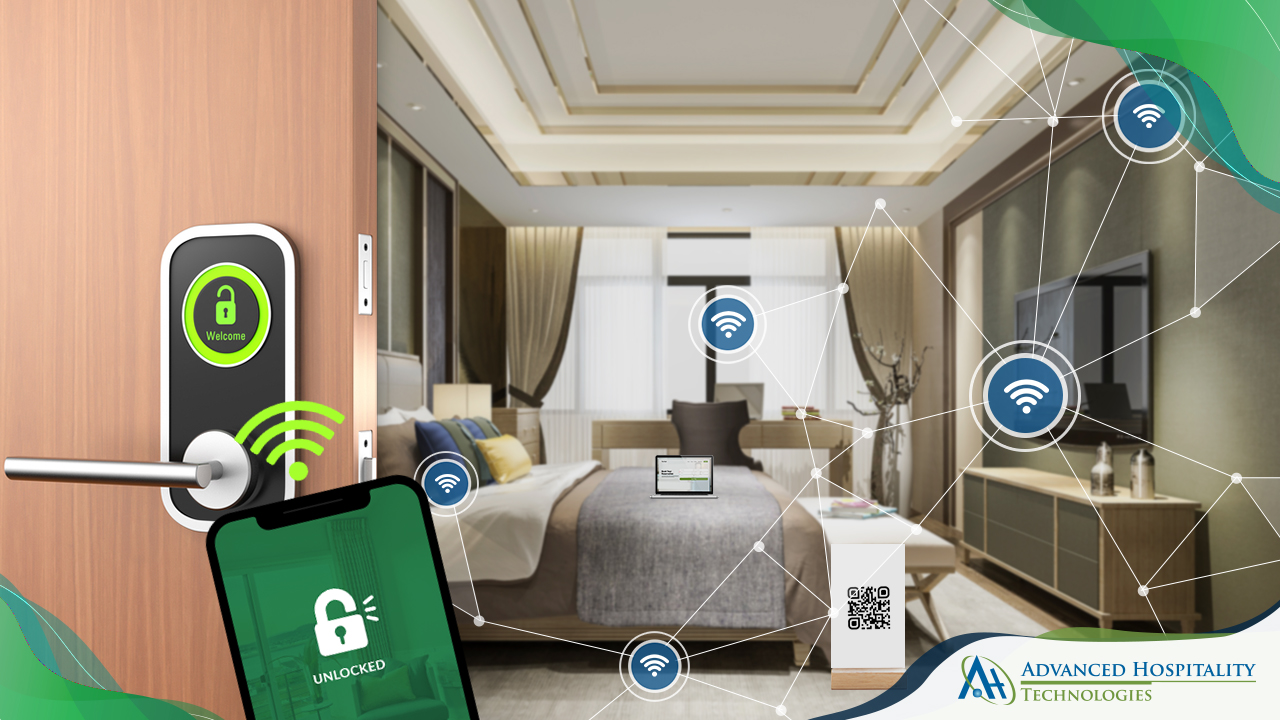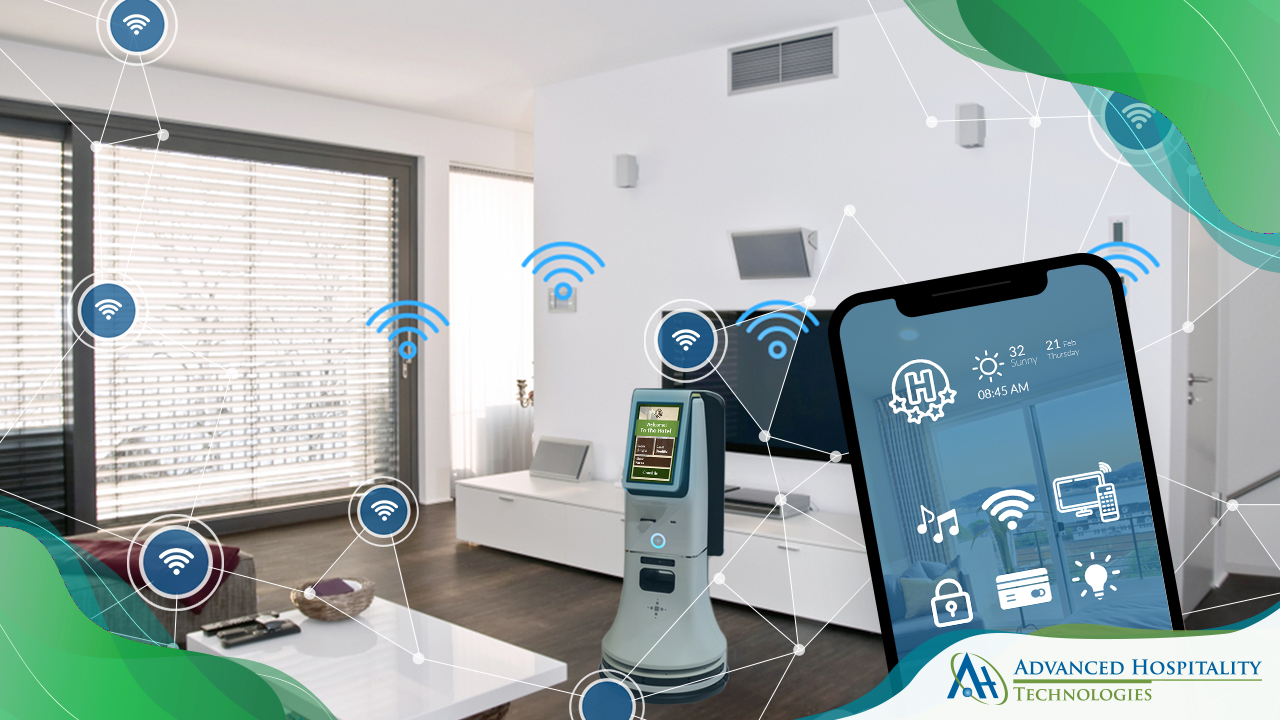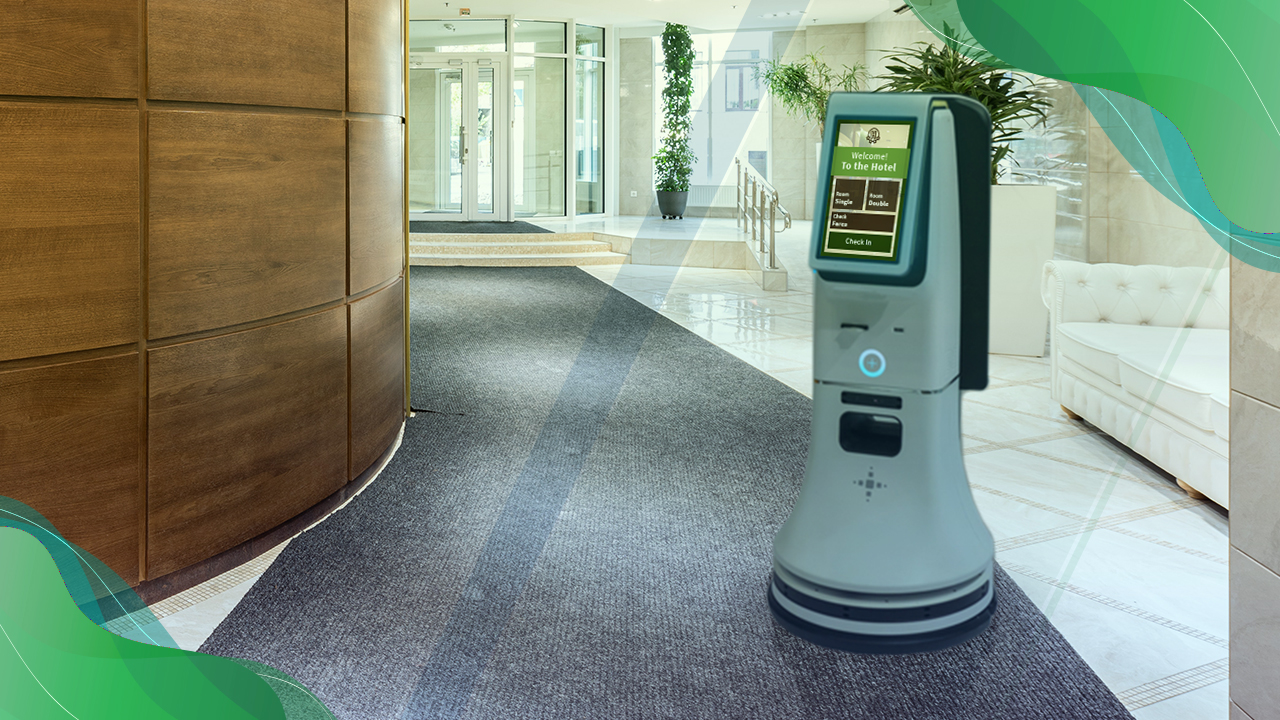The US hospitality industry remains in a state of survival and recovery, with hotel operators still exploring ways to rebuild trust with their guests.
The digitization of guest touch points including booking, check-in, payments, room service, concierge assistance, etc. is allowing several hospitality providers the ability to welcome guests and host them during these difficult times.
The lockdowns have seen Americans get involved with digital contactless services even more through 2020. As the US government relaxes restrictions much of the populace will remain careful and will increase their consumption of online bookings, digital check-in & check-out, touchless payments, smart rooms, and robots.
Smart technology has already taken off in the US hospitality industry, with operators increasingly interested in transforming their assets to fully automated smart buildings. IoT (Internet of Things) is a breakthrough way for hotels to personalize guest services, analyze guest behavior, and predict demands more accurately.
Smart Contactless Hospitality
Hotel technology management professionals have continuously pushed the idea of smart rooms, smart buildings, touchless services, and automated hotels. Hospitality however has always looked the other way considering the massive decisions they would have to take.
A decade of innovation and 2 years of pandemic later, hospitality is in a brilliant position to embrace the contactless service experience for their guests and especially their staff.
In 2018 a research published at Cornell University identified United States contactless service acceptance at 3%. Yes, that’s absolutely correct 3%, while the United Kingdom’s acceptance rate was at 65%.
In a 2020 research survey conducted by Skift & Oracle, 70% of hoteliers identified that their assets were already using contactless services primarily for payments, and communication with guests.
Guests also identified that touchless payments, digital room keys, and digital messaging apps were the three priorities that make them comfortable in hotels. So with the growing need for social distancing and sterilization comes the increased demands for contactless services, once at 3%.
Criton’s 2020 research identified that 80% of travelers prefer a hotel smartphone app to check in & out, get information, order room service, and communicate with the concierge. The findings of Criton’s research point out that smartphones will be an essential component of travel and hospitality in the coming years, with more than a 70% increase in guest app usage.
Smart rooms are bound to be a popular appearance in hotels post pandemic. The rise in demand from travelers for more automation, smart solutions, less interactions and heightened sanitization is actually forcing hotel operators to increase technology investment.
The ability to control room lights, air conditioning, room service robots, entertainment systems, alarms, curtains, and sometimes voice assistants is a leading demand from guests. In a previous article we have also mentioned 5 actions travelers demand from hospitality providers in 2021.
This increasing trend towards technology migration and digitization will also lead hospitality to consider hotel technology management as a core business strategy.
Hotel Technology Management
Hotel technology management was merely a concept for some operators, but this is the year it will actually become something tangible. With an array of technology now lining up in assets across the US, operators will be inclined to maintain, monitor, and upgrade their contactless services regularly.
Like hotel staff, hotel technology systems also require essential management to ensure their consistency, reliability, and security. For instance, at AHT Inc. we have formulated a complete post-COVID19 technology management bundle for hotel operators to choose from various solutions for their unique assets.
Our exclusive COVID19 technology management suite allows hoteliers to choose from a wide range of NFC, Bluetooth, and digital tools designed to assist guests during their stay. From retrofit smart rooms to completely renovated hotels, AHT Inc. delivers a complete toolkit to convert hotels into smart buildings.
One of the most essential parts of hotel technology management post-COVID19 is reinforcing the cybersecurity of hotel technology, especially the contactless elements. The increase in cyber breaches and hacks has already alerted everyone from the FBI to the World Bank.
Hotels operators, therefore, require professional hotel technology managers who are equipped with the necessary knowledge to monitor, maintain, and upgrade this tech on a routine basis.
Hotel technology providers also offer professional technology gap assessments and services that allow hoteliers to minimize investment & maintenance costs. Converting from a completely manual design to an automated one will definitely have its costs.
A hospitality technology management company or partner is essential to ensure hoteliers have access to vetted vendors with acceptable prices. Hospitality has previously been dominated by a handful of brands, who over the course of the pandemic have proven to be unhelpful with the type of problems we are experiencing with COVID19.
Hospitality is waking up to amazing new vendors including Alexander Shashou’s ALICE platform, a breakthrough digital PMS, and a guest management system designed for the hospitality of the future.
Conclusion
Hotel technology management is a popular topic among hoteliers migrating their services to more automated solutions. The constant monitoring and maintenance of technologies will be essential to ensure guests experience a seamless journey throughout their stay.
Visit us again for more hospitality technology news, insights, opinions and ideas. Do remember to join our social feeds for latest content and leave us your feedback for improvement.
Advanced Hospitality Technologies is a leader in Hospitality Technologies. We have an award winning benchmark for providing affordable, reliable and most advanced hospitality Technology Solutions.




